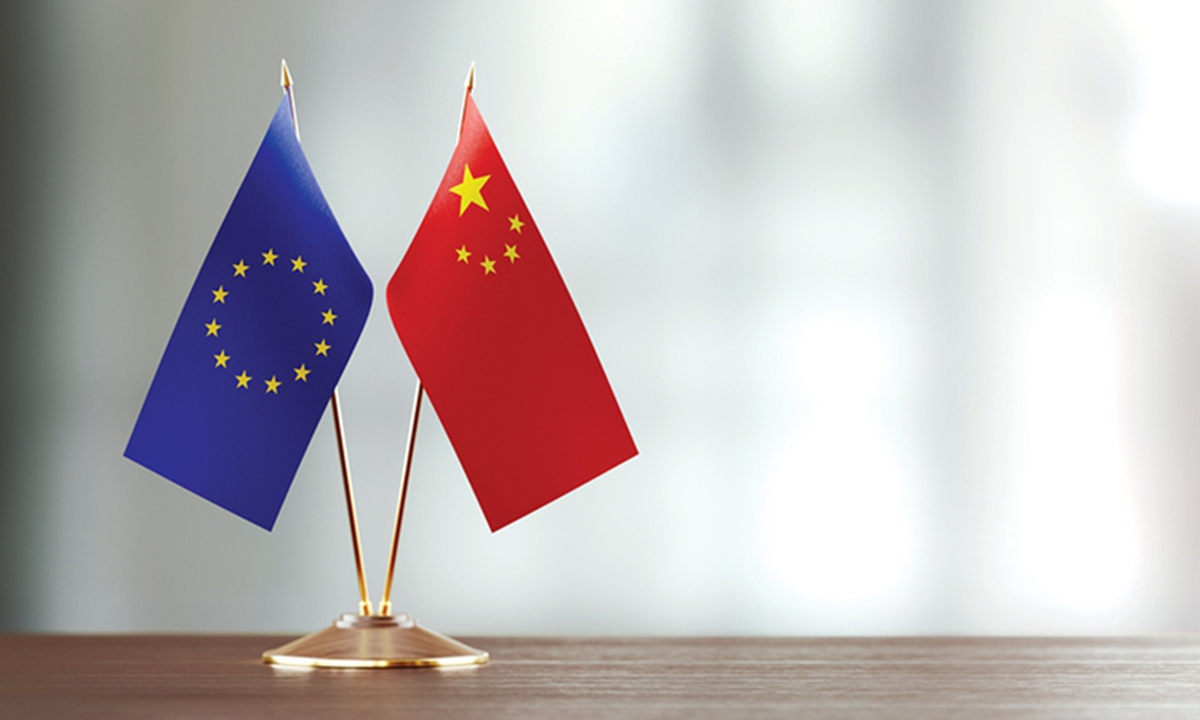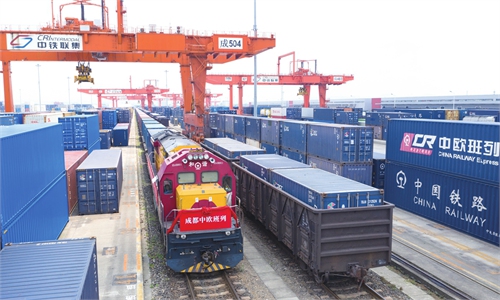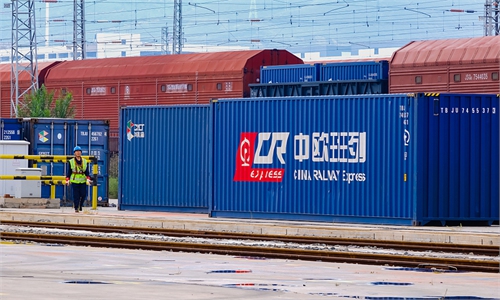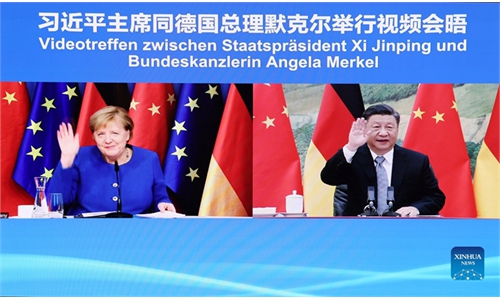
Photo: VCG
On Friday, Chinese President Xi Jinping had a phone conversation with European Council President Charles Michel. At a time when the West generally believes that China-Europe relations are on a tight rope, and people wonder whether EU's attitude toward China will go through a major change amid relaxing tensions between China and the US, such a relationship faces three historical tasks.First, gaps in perception. Traditionally, the two sides have ideological differences in governance, human rights and democracy. But now the main differences are about how to define each other and their bilateral relations. In general, China has not changed its perception of the EU: The bloc is a regional integration organization or a group of the most developed countries. Moreover, China-Europe relations are a relationship between two major civilizations, two major markets, and two major powers.
However, Brussels is simultaneously defining Beijing as its partner, competitor, and rival, especially a systemic rival. Beijing cannot accept this no matter what. Europe is currently rethinking if it is worthy of defining China as a "systemic rival" because this definition didn't benefit Europe at all.
Second, internal and external disturbances. The EU is not one country, but rather a union of 27 countries. Thus, the situation in each country varies due to elections, interest groups, and disturbances from the US. As German Chancellor Angela Merkel is about to leave office, the only strong leader of a major European country left is French President Emmanuel Macron. But France is also going to have a presidential election next year.
Strategic autonomy requires a strategy to guide it and strong leaders to promote it. Otherwise, it will become an excuse for the EU to reduce its dependence on China in supply chain. Egged on by the US, the European Parliament decided to start a farce of sanctions against China, regardless of the European Commission's almost decade-long negotiations with China. This has led to counter-sanctions from China and the disruption of the ratification process of the China-EU Comprehensive Agreement on Investment. Now, the European side has displayed interest to repairing damaged relations, amid its growing frustration with the Biden administration, and a desire not to be used as cannon fodder by the US.
Third, the opportunity of transformation. There are a few key forces shaping the international pattern and globalization in the 21st century. One is digitalization, networking and intellectualization, and the other is carbon neutrality and new energy. Human beings are moving from industrial civilization to digital and ecological civilization, providing opportunity for the transformation and upgrading of China-EU relations. The China-EU cooperation is in need for the international community to deal with climate change and digital transformations. It is also a leverage for the two parties to form new complementary cooperation, and develop third-party markets.
But indeed, China and the EU need to overcome some challenges, including competition in technology, market and regulation, as well as guarding against neo-protectionism. The EU has proposed the world's first carbon border tax. In the field of digitalization, China emphasizes innovation, the UK focuses more on social market performance after Brexit, and the US highlights the drive of private capital. The three models compete with each other but can also reach win-win cooperation. China and the EU, as digital partners, should overcome the US' suppression of China's digital development using the fuse of privacy and data security.
China and the EU are now gathering more common ground and resolving differences, defending true multilateralism and responding to challenges such as the COVID-19 pandemic and climate change. The EU may feel that its status in global affairs has declined. But the EU's position has actually risen in China's eyes. For the purposes of promoting the construction of a new type of international relations, global governance responsive to major changes unseen in a century, or people-centered domestic governance, China and the EU must cooperate to usher in a new future.
The author is Jean Monnet chair professor of the EU-initiated Jean Monnet Programme, and director of the Center for EU Studies at Renmin University of China. opinion@globaltimes.com.cn



